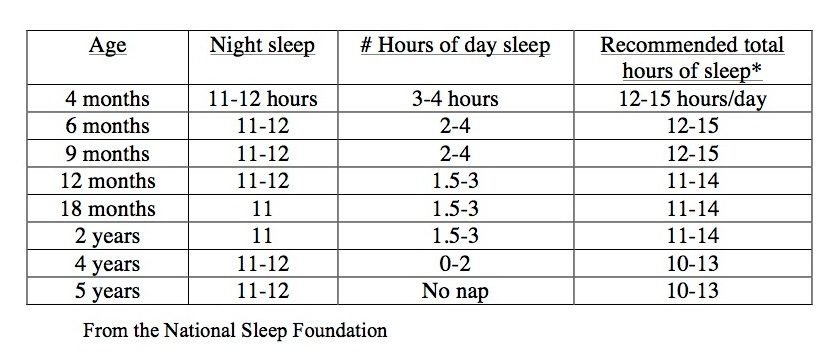Infant & Toddler Sleep Development
You child’s sleep patterns are constantly changing the first few months. Right when you think you’ve got it, your child will go through another change in their sleep habits. It’s good to know the basics of the infant and toddler sleep development to help guide you along the process.
0 to 4 weeks:
A newborn this age needs to sleep every hour or so, due to the high level of brain development and growth. She must shut down due to the stimulation that being awake creates. At this age, your baby can’t fully distinguish day from night until about around 8 weeks. There is no such thing as spoiling your baby too much. Holding her to sleep is mostly the norm.
5 to 8 weeks:
Night biorhythms begin to emerge and your baby’s brain starts organizing nighttime sleep. She can sleep up to 4 or 5 hour stretches at night. You can help her distinguish between day and night as she begins to establish her natural circadian rhythms. The brain takes longer in sorting out daytime sleep, so napping will remain a little disorganized until around 12 weeks. Make sure your baby doesn’t stay awake more than 2 hours, as this will over stimulate her.
9 to 12 weeks:
Her daytime sleep is more structured with regular naps, and she can be awake for 3-hour stretches. She now requires deeper sleep, which her brain can’t perform if she is in motion (e.g., in a swing or stroller). Begin to gently adjust and mold her rhythm into a flexible schedule and create a bedtime routine for nap and night. The routine helps create familiarity and structures a transition from awake time to sleep time.
Fourth and Fifth months:
Neurologically, the character of your baby’s sleep is changing as melatonin secretion begins to rise, increasing non-REM sleep. This means she now sleeps more deeply than a newborn. Her partial arousals are more distinct and she feels more awake during them. This is an excellent time to begin sleep coaching your baby, as bad sleep habits aren’t deeply ingrained, she is more receptive to a predictable schedule, and she has the ability to soothe herself.
Nine to Twelve Months:
Your baby now will need an average of 11 hours of uninterrupted sleep at night and 3 hours during the day. The length between waking from the last nap to going to bed at night should not exceed 4 hours. If your baby has more than 3-4 hours between the end of the last nap and bedtime, she can become overtired. She’ll have a harder time falling asleep at bedtime, she’ll wake up more often in the middle of the night, and she’ll more likely have early risings. By this age, you should have completely eliminated night feedings.
Thirteen to Eighteen Months:
At this age your child needs an average of 11 hours of interrupted sleep at night and 2 – 2.5 hours of daytime sleep. Most children transition from two to one nap a day.


